-
 bitcoin
bitcoin $87959.907984 USD
1.34% -
 ethereum
ethereum $2920.497338 USD
3.04% -
 tether
tether $0.999775 USD
0.00% -
 xrp
xrp $2.237324 USD
8.12% -
 bnb
bnb $860.243768 USD
0.90% -
 solana
solana $138.089498 USD
5.43% -
 usd-coin
usd-coin $0.999807 USD
0.01% -
 tron
tron $0.272801 USD
-1.53% -
 dogecoin
dogecoin $0.150904 USD
2.96% -
 cardano
cardano $0.421635 USD
1.97% -
 hyperliquid
hyperliquid $32.152445 USD
2.23% -
 bitcoin-cash
bitcoin-cash $533.301069 USD
-1.94% -
 chainlink
chainlink $12.953417 USD
2.68% -
 unus-sed-leo
unus-sed-leo $9.535951 USD
0.73% -
 zcash
zcash $521.483386 USD
-2.87%
What Is a Bitcoin Transaction Fee?
Bitcoin transaction fees incentivize miners and ensure smooth network functioning by compensating them for verifying and adding transactions to the publicly distributed ledger.
Nov 06, 2024 at 10:15 pm
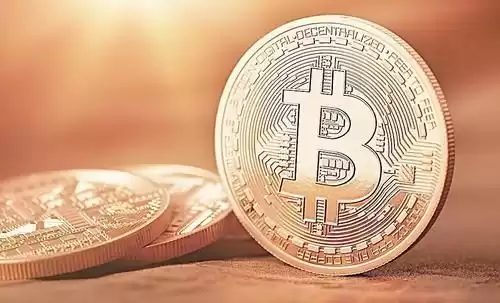
Within the realm of digital currencies, transaction fees play a crucial role. In the context of Bitcoin, a decentralized and peer-to-peer cryptocurrency, transaction fees serve as an integral component of the network's functioning, ensuring the smooth and efficient processing of transactions. Understanding the nature and significance of Bitcoin transaction fees is paramount for users engaging in cryptocurrency transactions.
1. The Essence of Bitcoin Transaction FeesBitcoin transaction fees, in essence, represent a modest sum of Bitcoin (BTC) paid to miners as compensation for their efforts in verifying and adding transactions to the Bitcoin blockchain, a publicly distributed ledger that records all transactions. These fees incentivize miners to prioritize and process transactions promptly, ensuring the network's stability and security.
2. Determinants of Transaction FeesThe magnitude of Bitcoin transaction fees is influenced by a confluence of factors:
- Network Traffic: During periods of high network traffic, when numerous transactions compete for inclusion in the next block, transaction fees tend to rise as users seek to expedite the processing of their transactions.
- Transaction Size: Larger transactions, involving sizable amounts of Bitcoin, typically incur higher fees as they demand more computational effort from miners to process.
- Priority Level: Users can opt to pay higher fees to prioritize their transactions, increasing the likelihood of their swift confirmation.
Several methods exist for estimating the appropriate transaction fee to ensure timely processing:
- Manual Estimation: Users can manually adjust the transaction fee based on network conditions and their desired confirmation time.
- Dynamic Fee Calculation: Certain Bitcoin wallets incorporate algorithms that automatically calculate the optimal transaction fee based on real-time network data.
- Third-Party Services: Online services and mobile applications provide estimates of appropriate transaction fees based on historical data and current network activity.
Transaction fees can impact users in several ways:
- Cost: Transaction fees represent a direct expense for users, reducing the net amount of Bitcoin received or sent.
- Confirmation Time: Higher fees prioritize transactions, leading to faster confirmation times, while lower fees may result in longer waiting periods.
- User Experience: Seamless and efficient transaction processing enhances the user experience, while excessive fees or lengthy confirmation times can be frustrating.
Optimizing transaction fees involves a balance between minimizing costs and ensuring timely processing:
- Timing: Conducting transactions during off-peak hours, when network traffic is lower, can result in reduced fees.
- Batching Transactions: Combining multiple smaller transactions into a single larger transaction can reduce overall fees.
- Fee Bumping: Increasing the transaction fee after initial submission can expedite confirmation if the network is congested.
Transaction fees play a multifaceted role in enhancing network security:
- Spam Prevention: Non-zero transaction fees discourage malicious actors from flooding the network with spam or low-value transactions.
- Network Stability: Fees incentivize miners to maintain the network's integrity and process transactions efficiently.
- Decentralization: Transaction fees contribute to the network's decentralization by compensating miners and ensuring the continued operation of the blockchain.
Disclaimer:info@kdj.com
The information provided is not trading advice. kdj.com does not assume any responsibility for any investments made based on the information provided in this article. Cryptocurrencies are highly volatile and it is highly recommended that you invest with caution after thorough research!
If you believe that the content used on this website infringes your copyright, please contact us immediately (info@kdj.com) and we will delete it promptly.
- Tokenization, Stablecoins, Remittances: The New York Minute for Global Finance
- 2026-02-01 19:20:01
- BlockDAG Poised for 100x Crypto Opportunity as Presale Enters Final Hours, Promising Massive Gains
- 2026-02-01 19:20:01
- Circle Charts Bold Course: Stablecoins to Reshape Global Finance by 2026
- 2026-02-01 19:25:01
- Big Apple Bites into Blockchain: Ethereum DApps, Exchanges, and Games Navigate a Shifting Crypto Tide
- 2026-02-01 19:15:01
- Cryptocurrency Presales and Pumpfun: The Big Apple's Bold Bet on Digital Gold Rush
- 2026-02-01 19:15:01
- Pi Network Bolsters Mainnet Migration and KYC Enhancements Amidst Ecosystem Growth
- 2026-02-01 19:10:02
Related knowledge

How to ensure your crypto purchase is safe from hackers?
Jan 28,2026 at 11:19pm
Secure Wallet Selection1. Choose hardware wallets for long-term holdings—devices like Ledger and Trezor isolate private keys from internet-connected s...
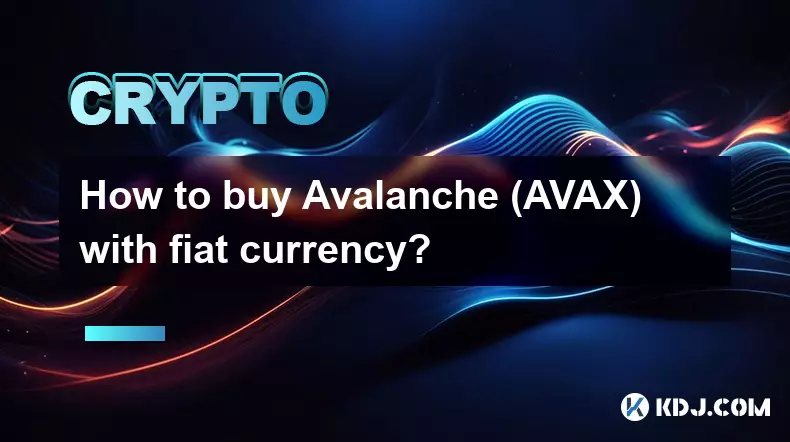
How to buy Avalanche (AVAX) with fiat currency?
Jan 29,2026 at 12:40pm
Choosing a Reliable Exchange Platform1. Identify exchanges licensed in your jurisdiction that support AVAX trading pairs with major fiat currencies li...
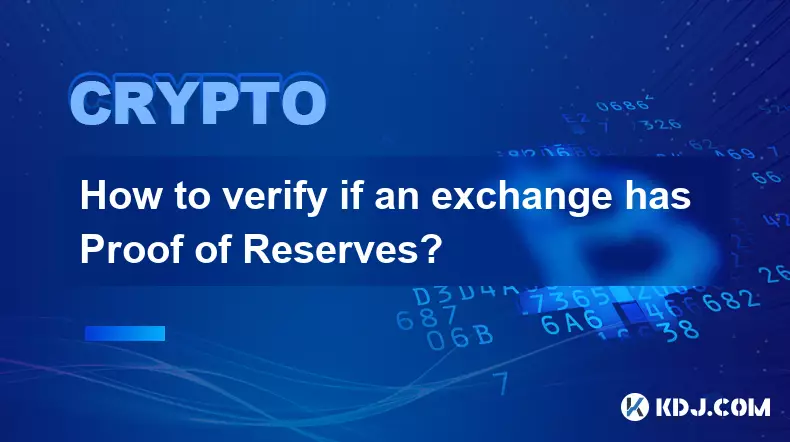
How to verify if an exchange has Proof of Reserves?
Jan 30,2026 at 06:39am
Understanding Proof of Reserves1. Proof of Reserves (PoR) is a cryptographic audit mechanism that demonstrates an exchange holds sufficient on-chain a...
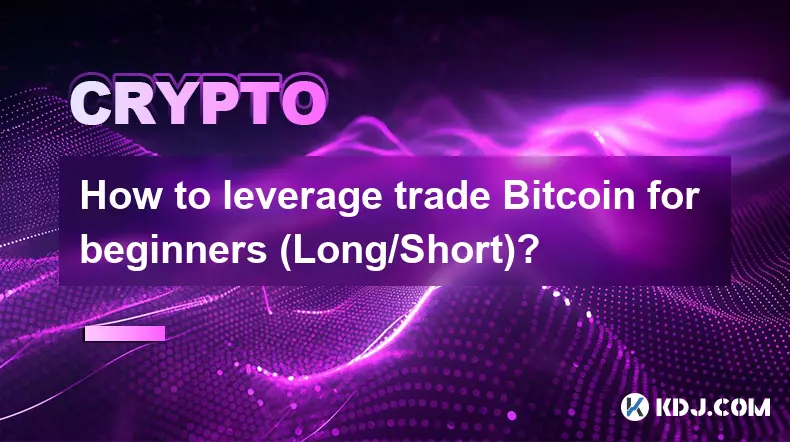
How to leverage trade Bitcoin for beginners (Long/Short)?
Jan 29,2026 at 03:19pm
Understanding Bitcoin Price Movements1. Bitcoin’s price is heavily influenced by macroeconomic indicators such as interest rate decisions, inflation d...
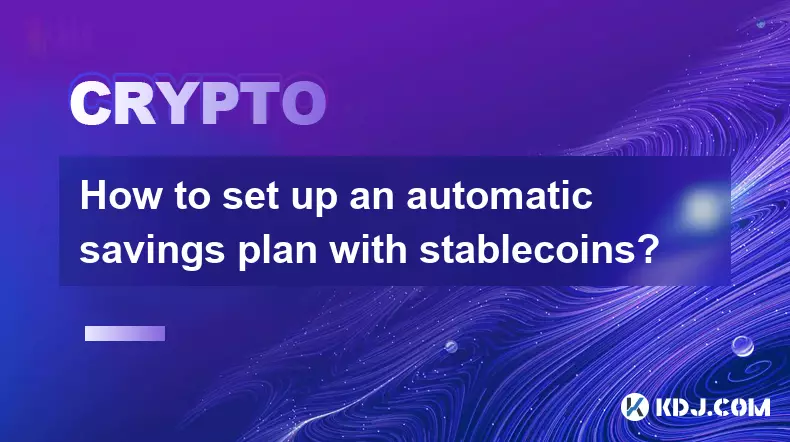
How to set up an automatic savings plan with stablecoins?
Jan 29,2026 at 06:39am
Understanding Stablecoin Savings Mechanics1. Stablecoins are digital assets pegged to fiat currencies like the US dollar, designed to minimize volatil...
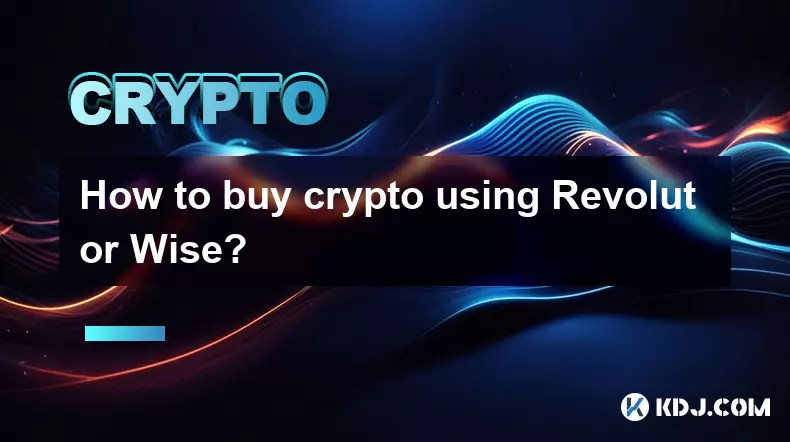
How to buy crypto using Revolut or Wise?
Jan 28,2026 at 11:00pm
Setting Up Your Revolut Account for Crypto Purchases1. Download the Revolut app and complete identity verification using government-issued ID and a se...

How to ensure your crypto purchase is safe from hackers?
Jan 28,2026 at 11:19pm
Secure Wallet Selection1. Choose hardware wallets for long-term holdings—devices like Ledger and Trezor isolate private keys from internet-connected s...

How to buy Avalanche (AVAX) with fiat currency?
Jan 29,2026 at 12:40pm
Choosing a Reliable Exchange Platform1. Identify exchanges licensed in your jurisdiction that support AVAX trading pairs with major fiat currencies li...

How to verify if an exchange has Proof of Reserves?
Jan 30,2026 at 06:39am
Understanding Proof of Reserves1. Proof of Reserves (PoR) is a cryptographic audit mechanism that demonstrates an exchange holds sufficient on-chain a...

How to leverage trade Bitcoin for beginners (Long/Short)?
Jan 29,2026 at 03:19pm
Understanding Bitcoin Price Movements1. Bitcoin’s price is heavily influenced by macroeconomic indicators such as interest rate decisions, inflation d...

How to set up an automatic savings plan with stablecoins?
Jan 29,2026 at 06:39am
Understanding Stablecoin Savings Mechanics1. Stablecoins are digital assets pegged to fiat currencies like the US dollar, designed to minimize volatil...

How to buy crypto using Revolut or Wise?
Jan 28,2026 at 11:00pm
Setting Up Your Revolut Account for Crypto Purchases1. Download the Revolut app and complete identity verification using government-issued ID and a se...
See all articles
























![[Audio stories] Streamer Became a Billionaire Overnight After Buying One Junk Coin [Audio stories] Streamer Became a Billionaire Overnight After Buying One Junk Coin](/uploads/2026/02/01/cryptocurrencies-news/videos/origin_697eaa9a495ed_image_500_375.webp)

















































